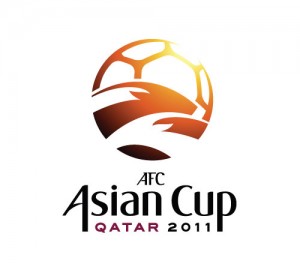Book Review – I’ve Got Mail: The Soccer Saturday Letters by Jeff Stelling
 Five grown men are sat around talking for several hours about football on TV… It sounds like the start of a joke, and for some non-football fans and cynics that is exactly what it is. It certainly doesn’t seem like the recipe for TV gold, but for nearly three decades Soccer Saturday has proven to be just that for millions of football fans, who’ve tuned in every weekend throughout the season to watch the gang talk about football with barely the sight of a ball, a pitch or a goal. And in the hot seat for the past 26 years has been the irrepressible Jeff Stelling, who manages, more often than not, to deliver the results as well as the one-liners, whilst keeping in check his merry band of pundits. Presumably as Jeff penned his latest tome, I’ve Got Mail: The Soccer Saturday Letters, he hadn’t foreseen that by the time the book was published this autumn ahead of the new football season, three quarters of the usual line-up would have been given the axe, with stalwarts Matt Le Tissier, Phil Thompson and Charlie Nicholas heading out of Sky Towers. Indeed, in the book itself, he praises the quartet as being his dream Soccer Saturday team and bemoans other media outlets that have freshened up line-ups in recent times. Although he’s also quick to applaud the new generation of pundits, it does remain to be seen how Soccer Saturday without the three amigos will work. It’ll certainly take some getting used to, but in a time in which football and the world has changed exponentially, Soccer Saturday has changed along with it, though one fixture remains. As with the previous twenty-six seasons, Jeff Stelling will be at the helm for the start of another unprecedented season when the 2020/21 campaign gets underway, and his book is perfectly timed to coincide.
Five grown men are sat around talking for several hours about football on TV… It sounds like the start of a joke, and for some non-football fans and cynics that is exactly what it is. It certainly doesn’t seem like the recipe for TV gold, but for nearly three decades Soccer Saturday has proven to be just that for millions of football fans, who’ve tuned in every weekend throughout the season to watch the gang talk about football with barely the sight of a ball, a pitch or a goal. And in the hot seat for the past 26 years has been the irrepressible Jeff Stelling, who manages, more often than not, to deliver the results as well as the one-liners, whilst keeping in check his merry band of pundits. Presumably as Jeff penned his latest tome, I’ve Got Mail: The Soccer Saturday Letters, he hadn’t foreseen that by the time the book was published this autumn ahead of the new football season, three quarters of the usual line-up would have been given the axe, with stalwarts Matt Le Tissier, Phil Thompson and Charlie Nicholas heading out of Sky Towers. Indeed, in the book itself, he praises the quartet as being his dream Soccer Saturday team and bemoans other media outlets that have freshened up line-ups in recent times. Although he’s also quick to applaud the new generation of pundits, it does remain to be seen how Soccer Saturday without the three amigos will work. It’ll certainly take some getting used to, but in a time in which football and the world has changed exponentially, Soccer Saturday has changed along with it, though one fixture remains. As with the previous twenty-six seasons, Jeff Stelling will be at the helm for the start of another unprecedented season when the 2020/21 campaign gets underway, and his book is perfectly timed to coincide.
Whilst Jeff Stelling has had two volumes already published, the third uses as its launchpad correspondence he has received throughout his career, beginning with a telegram – yes, a telegram – in the late 1970s that would set Jeff on his journey to Sky Sports anchor. From there he works through various elements of the job and his roles, using letters and emails he’s received to explore everything from the pitfalls of fame and fortune to his charity work. There are letters full of vitriol, others full of thanks, and ones intended to blackmail, and each serves to feed into a narrative about Jeff’s experiences across his four decades of broadcasting service. However, although correspondence does feature in several of the chapters, it’s not quite as prolific as perhaps the subtitle The Soccer Saturday Letters suggests and generally is just a starting point to explore a theme, allowing Jeff licence to elucidate on the highs and lows of his life in the sporting spotlight. Call me nosy, but personally I would have liked to have seen more of the letters and emails, which really do add to the book, if only in censored expletives.
For football fans, however, overall the book is a great insight into the (not-always-) glamorous world of sports broadcasting, including the difficulties of interviewing Jose Mourinho when he’s not in a particularly accommodating mood, the best and worst Champions League experiences and the realities of awards ceremonies. And, of course, there are a smattering of Stelling’s (in)famous puns, including old favourites featuring Mo Eisa and Keaghan Jacobs, as well as some rarer offerings to watch out for. Aside from the natural repartee, there are also some really touching moments too that cover Jeff’s incredible charity efforts and the viewers’ affinity with him, and Soccer Saturday in particular, proving, if ever it needed to be proven, just how integral football and sports coverage is to people’s mental and social well-being. And the anecdotes and stories in the book will resonate for readers far and wide, for whom Soccer Saturday has become as much a fixture of the week as the games themselves. I for one will be tuning in as ever, looking forward to catching up with Jeff and his new cohort, and keeping my fingers crossed that Archie McPhee scores, so that his Nanny can get a mention.
(Headline. September 202. Hardcover 256 pp)
Jade Craddock
 Whilst here in England the weekend has been dominated by the FA Cup including Leeds brave effort at the Emirates, the return of Dalglish to manage Liverpool and Cup shocks from the likes of Stevenage, Notts County, Southampton, Torquay United and Burton Albion – an international tournament kicked off on Friday. Neither BBC Sport or Sky Sports included the fixtures or results on their football website pages.
Whilst here in England the weekend has been dominated by the FA Cup including Leeds brave effort at the Emirates, the return of Dalglish to manage Liverpool and Cup shocks from the likes of Stevenage, Notts County, Southampton, Torquay United and Burton Albion – an international tournament kicked off on Friday. Neither BBC Sport or Sky Sports included the fixtures or results on their football website pages.